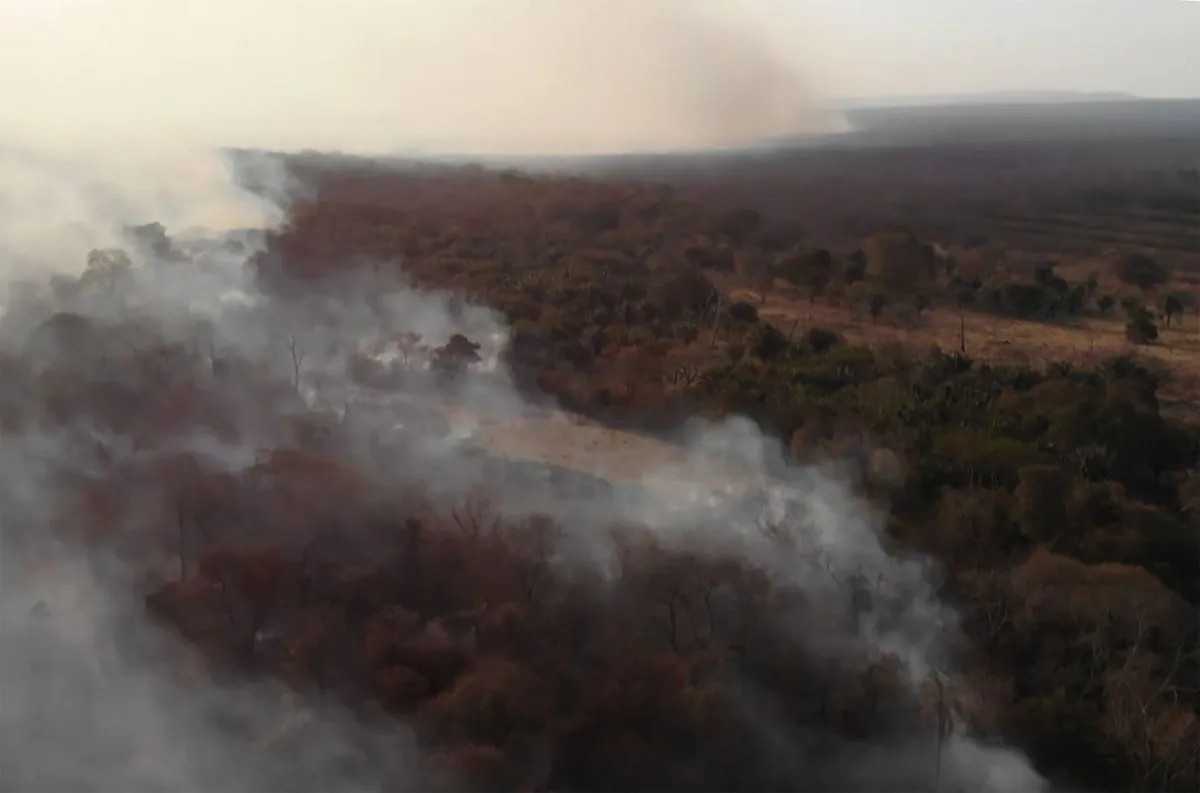In a devastating turn of events, Bolivia is currently experiencing its most severe wildfire crisis on record. The South American nation, known for its rich biodiversity and unique geographical features, has seen over 10 million hectares (24.7 million acres) of land consumed by flames in 2024, surpassing previous records set in 2010 and 2019.
The eastern region of Santa Cruz, a vital agricultural hub, has borne the brunt of the disaster, with nearly 7 million hectares affected. The neighboring department of Beni follows with 3 million hectares burned. This unprecedented scale of destruction is equivalent to an area larger than Iceland or Cuba, highlighting the magnitude of the crisis.
The Tierra Foundation, a non-governmental organization monitoring the situation, has reported that the fires have had a profound impact on local communities. Thousands of households, including farmers and indigenous people, have been displaced due to the loss of homes, crops, and livelihoods. The contamination of air and water sources further compounds the challenges faced by these communities.
"What's happened in recent months in eastern Bolivia, and will continue to occur at least through October, is a disaster of a magnitude unprecedented in the country."
The Bolivian government has responded by declaring a national disaster, acknowledging the severity of the situation. This declaration came after mounting pressure from local authorities, community organizations, and citizens calling for more robust intervention.
Climate change has played a significant role in exacerbating the spread of these wildfires. While human activities are often the initial cause, the hot and dry conditions attributed to fossil fuel-driven climate change have created an environment conducive to rapid fire spread. South America has been experiencing a series of heat waves since last year, further contributing to the crisis.
It's worth noting that Bolivia, despite its current challenges, is a country of remarkable diversity and natural wonders. Home to over 40% of all animal and plant species found on Earth, it boasts unique features such as the world's largest salt flat, Salar de Uyuni, and Lake Titicaca, the world's highest navigable lake. The country's rich cultural heritage is reflected in its 37 official languages and the largest proportion of indigenous people in Latin America.
As Bolivia grapples with this environmental disaster, the impact on its ecosystems and communities is profound. The country, which is the world's 6th largest producer of quinoa and holds the largest lithium reserves globally, faces significant challenges in balancing economic development with environmental conservation.
The ongoing wildfire crisis serves as a stark reminder of the urgent need for global action on climate change and sustainable land management practices. As Bolivia works to overcome this unprecedented disaster, the international community must recognize the interconnectedness of global environmental challenges and the importance of supporting nations facing such crises.
